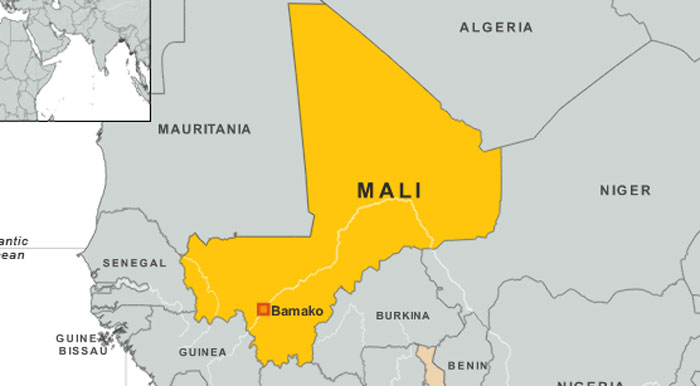
Image credit: VOA
The resignation of Mali’s Prime Minister Cheick Modibo Diarra was another twist in an ever-changing crisis and coincidently happened on the same day as IPI’s informal conflict assessment exercise on Mali: December 11, 2012.
For the exercise, IPI invited graduate students from New York University and Columbia University to apply their assessment skills on situations that are on the Security Council agenda.
The power struggle between the different actors in Mali is one of the main sources of the political gridlock, be it al-Qaeda in the Islamic Maghreb’s (AQIM) struggle for control over the north, or the Tuareg and Ansar Dine’s plight for autonomy from the Malian government. Mali’s corrupt government has created a bitter civil society that is disillusioned by patronage politics and lack of economic opportunities. This has culminated into a powerless local government and a struggle for local autonomy. Any analysis should therefore take into account national and local actors’ greed and grievances—past and present—to make sense of the changing dynamics between groups; no real progress can be made if so many actors’ competing needs and expectations are left unattended.
The Tuareg groups, for example, perceive themselves as marginalized, unequal, impoverished, and ill represented in government. Such long-standing grievances have resulted in a whole new layer of present greed that continues to divide society and create new sources of confrontation between groups: AQIM tries to dominate the north through a Sharia ideological base while also operating illicit markets of human trafficking and drug cartels; Ansar Dine continues vying for power in the north; while the Movement for Unity and Jihad in West Africa (MUJAO) uses the chaos to politicize ethnicity and turn groups against each other.
In identifying such trends, it can be helpful to hypothesize future and potential grievances. As more areas become governed by Sharia law, social ills such as forced marriage, rape, and recruitment of child soldiers increase dramatically. At the same time, there seems to be an emerging re-marginalization of the Tuareg National Movement for the Liberation of Azawad (MNLA) as they are pushed out by AQIM. It is therefore useful to think of how grievances change as things reconsolidate and the situation takes on a new form.
These trends should be considered as the Security Council plans a military intervention to bring stability to the region, though the debate continues as to whether such an approach is the best way forward. Will the international community be willing to fund such an operation, given the state of the global economy? Is targeting groups a viable option, considering that many of them–particular the Tuaregs–are heavily assimilated within civilian quarters? Will the intervention take place along simultaneous diplomatic efforts, or would such negotiations be hampered as a result of an ensuing military affair? How can the intervention ensure a long-term sustainable peace?
Given that the center is weak and fragmented, the Malian government is struggling to bring order to their internal affairs thus rendering the success of a military operation highly questionable. At the same time, diplomatic efforts are no longer proving sufficient because various actors, particularly those in control of the north, are not willing to engage in a dialogue which warrants a more aggressive military approach.
The conflict-assessment discussion suggested that the approach to the Malian crisis has lacked creativity. The following suggestions were put forward:
1. Inclusive dialogue as a capacity for peace: The discussion called on civil society, youth, and women to play a more direct role in peacemaking, ideally through the creation of new non-violent groups that would not be led by the international community.
2. Incentives and disincentives: Are there incentives or disincentives that can modify the behavior of key actors? For example, by appealing to Ansar Dine’s business mentality, is there a way forward by luring them towards commerce? And what disincentives could shift the relationship between actors?
3. Religion: Is there a way to reverse how Sharia law is being used negatively for political means? How can religion be used in a more positive way?
The way forward in Mali is far from clear. Two imperative points need to be taken into account: whatever force is deployed in the region, the nature of an intervention must be distinctly a Malian affair. In other words, the international community’s role is first and foremost to offer support to the Malian population. Secondly, a sense of prioritization needs to be established: the highest priority is the dire humanitarian situation that, so far, has left 400,000 displaced and caused massive food insecurity. Other short-term objectives must be to lengthen the peace negotiations between the MNLA and Ansar Dine as a means to facilitate disarmament.







